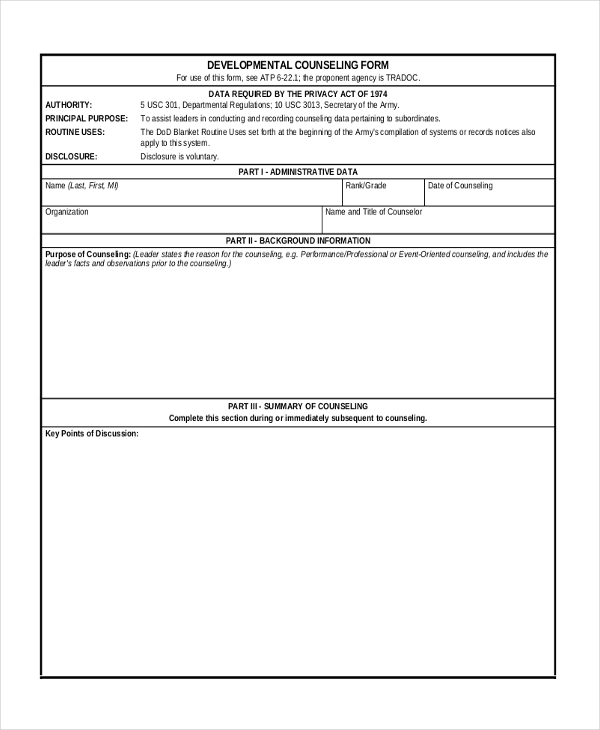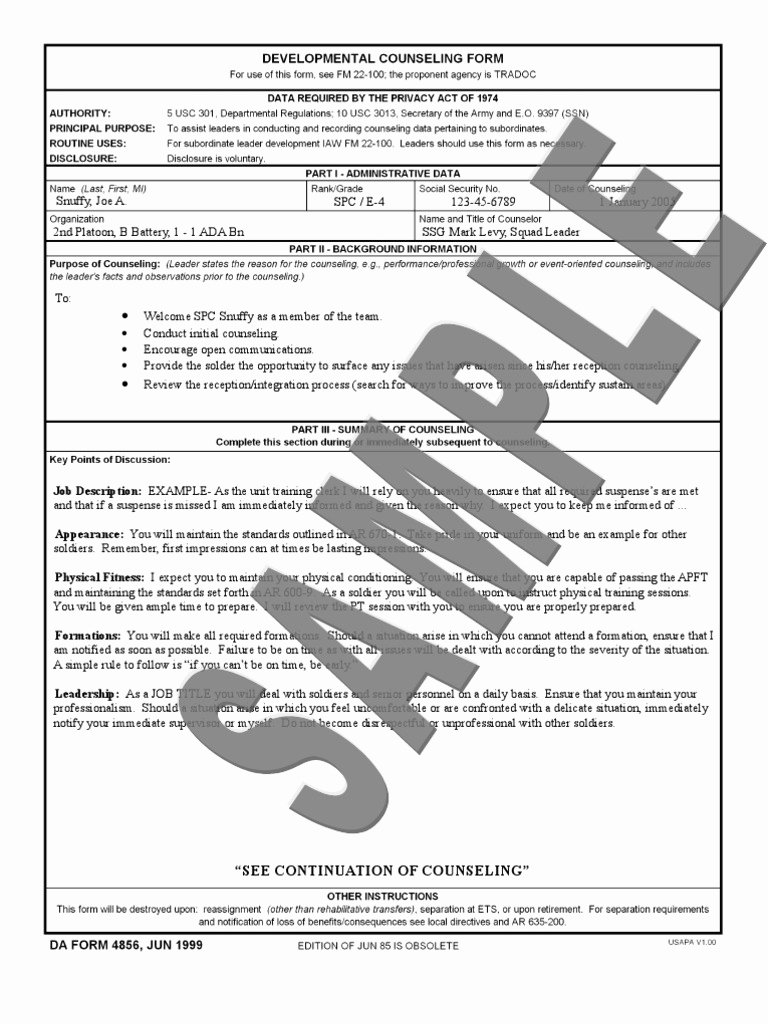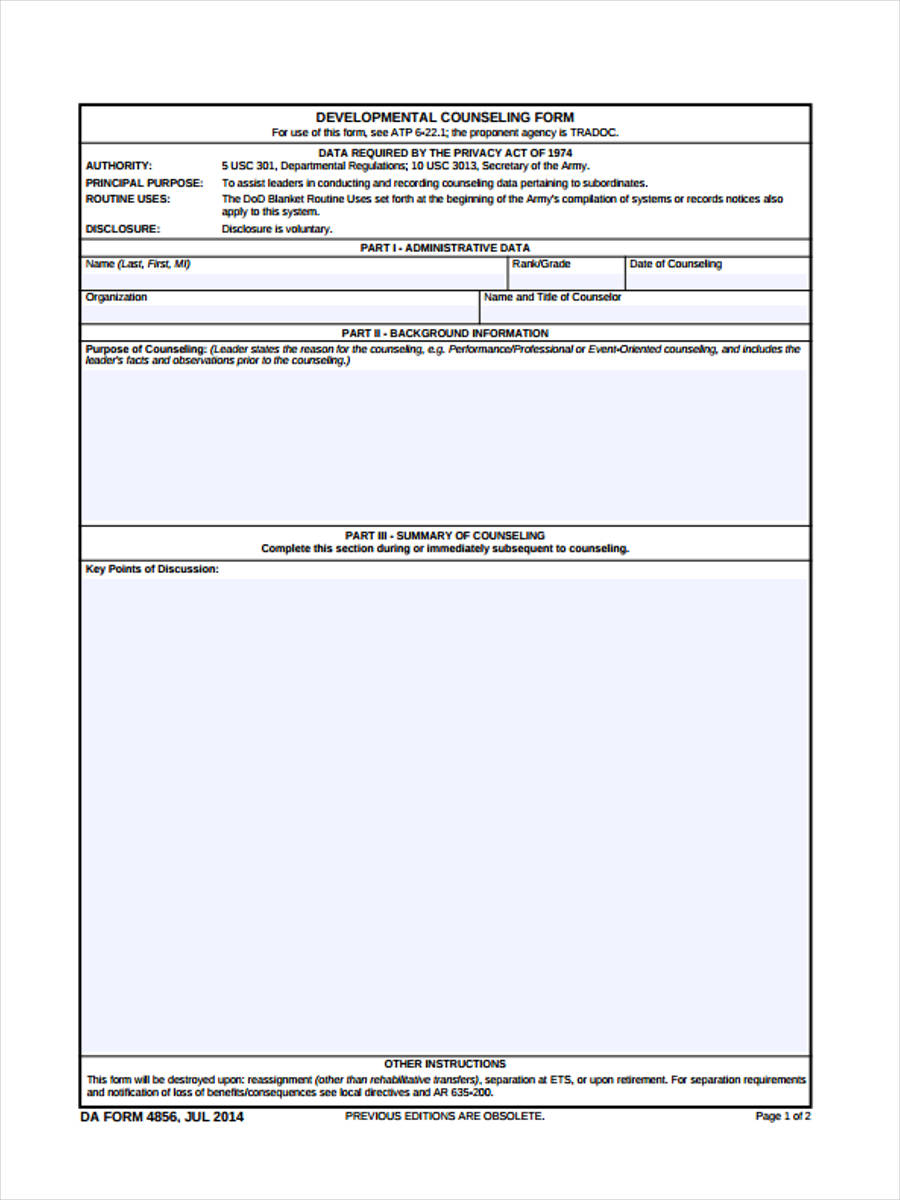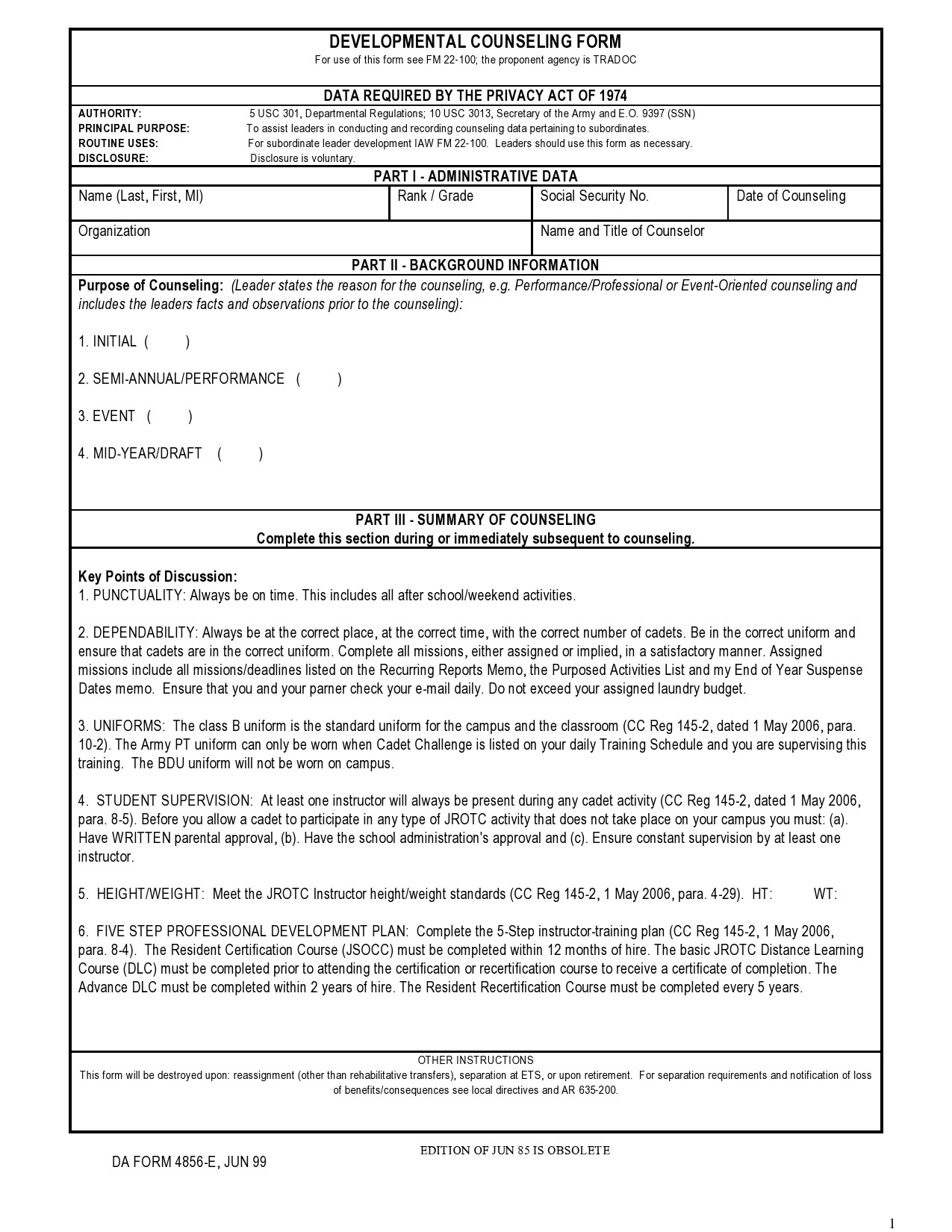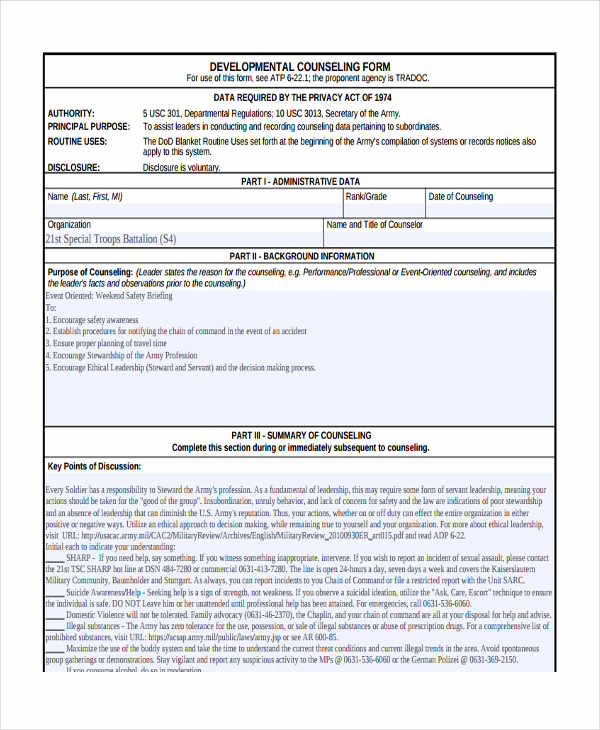The Army Initial Counseling Template That Works: A Guide for Leaders
The Army’s success hinges on effective leadership, and a cornerstone of that leadership is the initial counseling. This crucial meeting sets the stage for a Soldier’s performance, development, and overall success within the unit. Getting it right from the start is paramount. This article provides a comprehensive guide and a working template to help leaders conduct effective initial counselings, maximizing Soldier understanding and fostering a positive working relationship. We’ll cover essential components, best practices, and address common questions to ensure you’re well-equipped to lead.
Why Initial Counseling Matters: Setting the Foundation
The initial counseling, as outlined in Army Regulation (AR) 600-20, is more than just a formality. It’s a critical opportunity to:
- Establish expectations: Clearly define the standards of conduct, performance, and appearance expected of the Soldier.
- Communicate unit mission and goals: Provide context and purpose, helping the Soldier understand their role within the larger organization.
- Identify strengths and weaknesses: Begin the process of understanding the Soldier’s capabilities and areas for improvement.
- Foster a positive relationship: Build trust and rapport, creating a foundation for open communication and mentorship.
- Set the stage for future counselings: Provide a framework for ongoing feedback and development.
Essentially, the initial counseling is the first step in a Soldier’s journey within your unit. A well-executed counseling can significantly impact their motivation, performance, and overall experience.
Key Components of an Effective Initial Counseling
A successful initial counseling isn’t just about ticking boxes; it’s about meaningful conversation and setting clear expectations. Here’s a breakdown of the crucial components:
- Preparation is Key:
- Review the Soldier’s records: Familiarize yourself with their background, training, and any previous assignments.
- Prepare a comfortable environment: Choose a private and quiet space where the Soldier feels comfortable speaking freely.
- Gather necessary documents: Have copies of relevant regulations, unit SOPs (Standard Operating Procedures), and the counseling form readily available.
- Introduction and Building Rapport:
- Introduce yourself: Clearly state your name, rank, and position.
- Welcome the Soldier: Make them feel comfortable and at ease.
- Briefly discuss your leadership style and expectations.
- Ask open-ended questions: Encourage them to share their background, goals, and any concerns they may have.
- Defining Expectations and Responsibilities:
- Unit Mission and Goals: Explain the unit’s overall mission, objectives, and how the Soldier contributes.
- Standards of Conduct: Cover aspects like uniform standards, personal appearance, and ethical behavior (as outlined in AR 600-20 and applicable unit SOPs).
- Performance Standards: Discuss the expectations for job performance, including specific tasks and responsibilities.
- Chain of Command: Clearly outline the Soldier’s chain of command, including who they report to and who they can go to for assistance.
- Opportunities for Professional Development: Discuss training opportunities, educational programs, and career progression paths.
- Soldier’s Input and Feedback:
- Encourage questions: Provide ample opportunity for the Soldier to ask questions and clarify any uncertainties.
- Listen actively: Pay attention to their responses and concerns.
- Address any concerns or challenges: Offer guidance and support.
- Documentation and Follow-Up:
- Complete the counseling form: Accurately document the discussion, including agreed-upon goals and timelines.
- Provide a copy of the counseling form to the Soldier.
- Schedule follow-up counselings: Establish a regular schedule for future performance reviews and development discussions.
A Working Army Initial Counseling Template
While specific templates may vary based on unit and individual needs, here’s a suggested outline you can adapt:
I. Soldier Information
- Name:
- Rank:
- MOS (Military Occupational Specialty):
- Date of Counseling:
- Date of Assignment:
- Unit:
- Counselor:
II. Purpose of Counseling
- Initial Counseling (New to the Unit)
- Performance Counseling
- Event-Oriented Counseling
- Other: (Specify)
III. Key Discussion Points
- Unit Mission and Soldier’s Role: (Outline unit mission and how the Soldier contributes.)
- Chain of Command: (Clearly state the Soldier’s chain of command.)
- Standards of Conduct and Appearance: (Discuss uniform, personal appearance, and ethical conduct.)
- Performance Standards: (Outline job responsibilities and expectations.)
- Training and Development Opportunities: (Discuss available training, schools, and career progression paths.)
- Soldier’s Goals and Aspirations: (Encourage the Soldier to share their goals.)
- Soldier’s Concerns/Questions: (Record any concerns or questions raised by the Soldier.)
- Mentorship opportunities (Discuss how you can help and any other mentorship opportunities available.)
IV. Plan of Action
- Specific goals for the Soldier to achieve.
- Timeline for achieving the goals.
- Resources available to the Soldier.
- Follow-up date for future counseling.
V. Assessment
- Soldier’s understanding of expectations.
- Soldier’s commitment to achieving goals.
- Counselor’s assessment of the Soldier’s potential.
VI. Signatures
- Soldier:
- Counselor:
VII. Remarks (Optional – Use this space for any additional notes or comments.)
Note: Adapt this template to fit your specific unit’s needs and the individual Soldier’s situation.
Best Practices for Effective Counseling
- Be prepared: Thorough preparation is crucial for a productive counseling session.
- Be professional: Maintain a respectful and professional demeanor throughout the counseling.
- Be transparent: Be honest and upfront about expectations and performance.
- Be a good listener: Actively listen to the Soldier’s concerns and feedback.
- Be constructive: Focus on providing positive and actionable feedback.
- Be consistent: Conduct regular counselings to track progress and provide ongoing support.
- Be adaptable: Tailor the counseling to the individual Soldier and their specific needs.
Conclusion: Leading Through Effective Communication
The Army initial counseling is a vital tool for fostering a strong unit and developing successful Soldiers. By following the guidelines and using the template provided, you can create a positive and productive environment for your Soldiers. Remember, effective leadership is built on communication, trust, and a commitment to the growth and development of your team. By investing in the initial counseling process, you are investing in the future success of your Soldiers and the overall strength of the Army.
Frequently Asked Questions (FAQs)
- What if the Soldier is hesitant or unresponsive during the counseling?
- Build rapport by asking simple questions about their background and interests. Be patient and understanding. Explain the importance of the counseling and its benefits. Encourage them to share their concerns.
- How often should follow-up counselings be conducted?
- The frequency of follow-up counselings depends on the Soldier’s performance and development needs. Generally, follow-up counselings should be conducted at least quarterly, or more frequently if needed.
- What if the Soldier’s performance is not meeting expectations?
- Address the specific areas of concern. Provide constructive feedback and suggest ways for improvement. Set clear goals and timelines. Document the counseling and follow up to monitor progress. Consider more frequent counseling sessions.
- What regulations outline the requirements for initial counseling?
- Army Regulation (AR) 600-20, Army Command Policy, and AR 623-3, Evaluation Reporting System, provide guidance on counseling requirements.
- Can I use this template for all types of counselings?
- No, this template is designed for initial counselings. Other counselings, such as performance or event-oriented counselings, will require different focuses.
